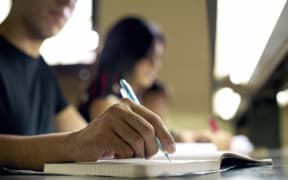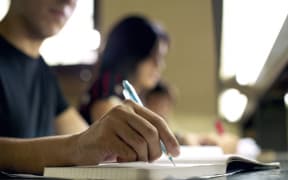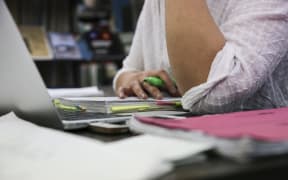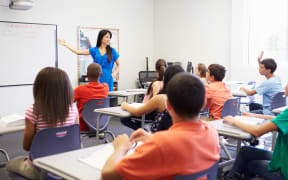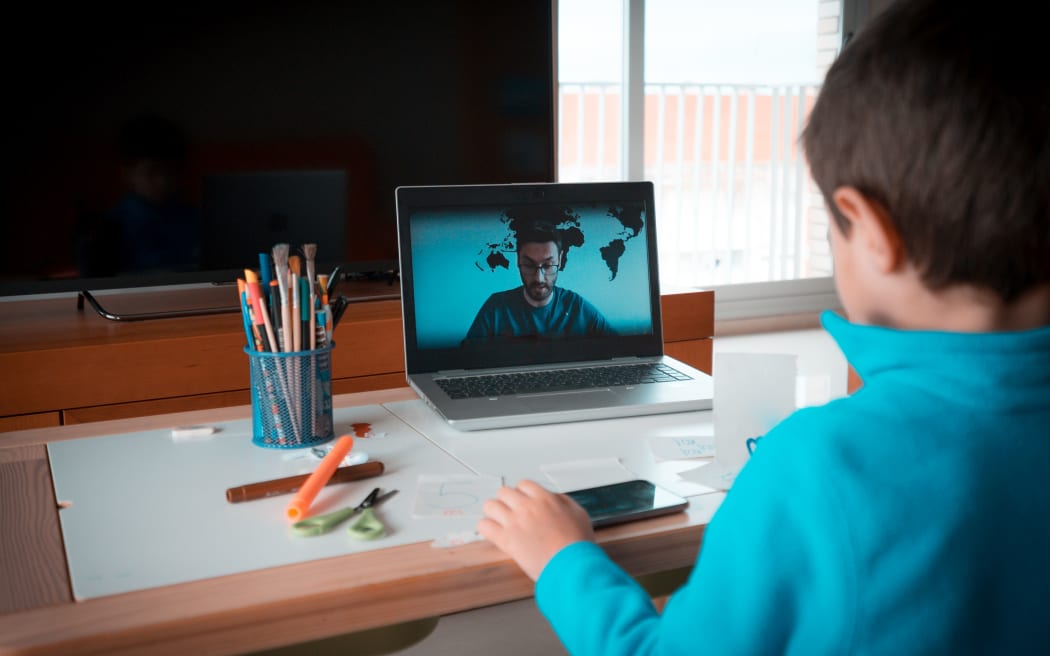
School students were forced to turn to online school during the Covid lockdowns in 2020 and 2021 (file image). Photo: 123RF
Nearly three years of pandemic-related disruption has damaged learning in some schools and left others almost unscathed.
In some areas principals warned it could take years for children to catch up on what they have missed, while others said achievement was no different than before the pandemic.
Schools visited by RNZ also described effects including poor attendance and more online abuse.
In Porirua East, Tairangi School principal Jason Ataera said it could take years to fix the damage to children's achievement.
"In our community I would say it would be rare for anybody to be at the same level they would have been had the pandemic not happened," he said.
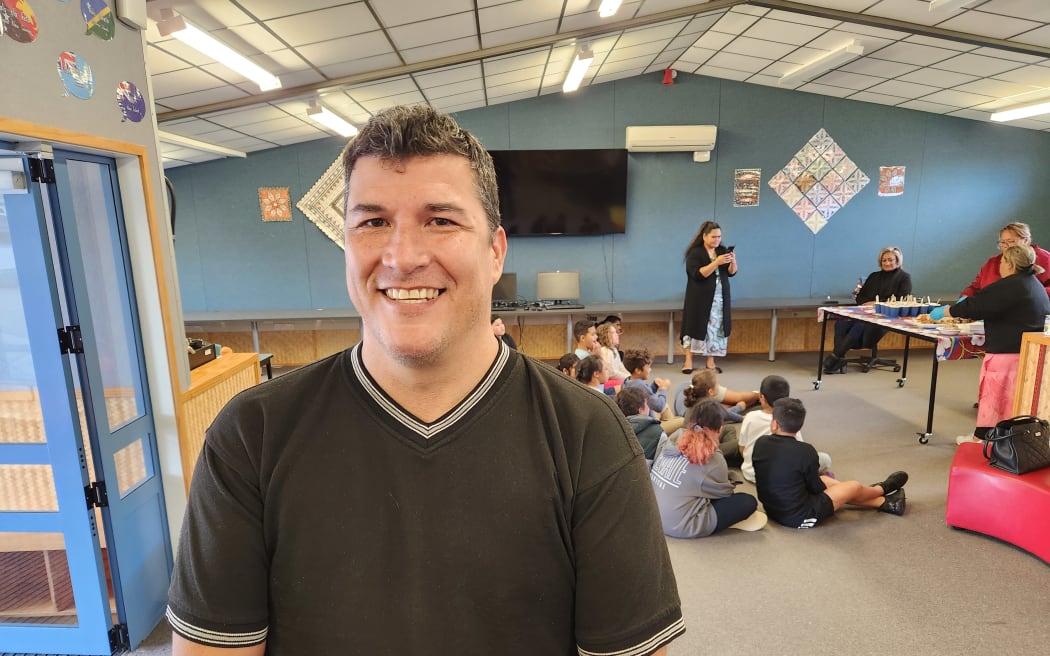
Tairangi School principal Jason Ataera. Photo: RNZ / John Gerritsen
Ataera said some families were not well equipped to provide home-learning during the lockdowns of 2020 and 2021 and this year Covid-related absences in the first and second terms meant the school delivered consistent "deep learning" in just seven of the first 20 weeks of classes.
"You can't make that loss up within that year, we're talking about a longitudinal support and intervention programme. But I would say the education sector knows what to do. We've looked at accelerated learning before, we know programmes that work, it's just doing it on a scale that maybe hasn't been done before," he said.
"I would hope within three years, more, that we would expect to see students back to where they were."
Principals from schools in other low socio-economic areas told RNZ they had similar problems and expected it would take several years for some children to catch up, especially those who started school in the past two years.
Ataera said one of the most noticeable effects of the pandemic was worse attendance.
"Kids spent long periods of time away from school, schools closing when they were well, them getting sick or peers getting sick in their household, so we've had a couple of years now of really disrupted attendance patterns which has started to come through as the norm," he said.
"Part of it is unintentionally we've got families who have created poor attendance routines at home because they had to come up with alternatives during covid."
Ataera said the pandemic disrupted the "deep learning" that happened when a class of children concentrated on a single topic for several days.
"When you've got kids who are out because they're sick on different days of the week, and you've got staff who are out and relievers are in, or classes are combined... you've broken those deep learning patterns so what we've ended up with for a long period of time is broken learning programmes that are kind of stand-alone and they don't end up in the accelerated progress we're looking for for our learners where they can make connection to previous learning, it's often just learning in isolation," he said.
"It seems to have affected our junior school more than our senior school. Our junior school, especially with our booster programmes, often we're teaching kids very early literacy and if they do not yet have early literacy that was really hard to teach over a zoom."
Low-impact
At Silverstream School in Upper Hutt, teacher Jim McGurk said his Year 6 class was achieving and behaving pretty much as normal.
"This cohort of kids here has really coped pretty well," he said.
"Generally the family support's been quite good and that's made the big difference."
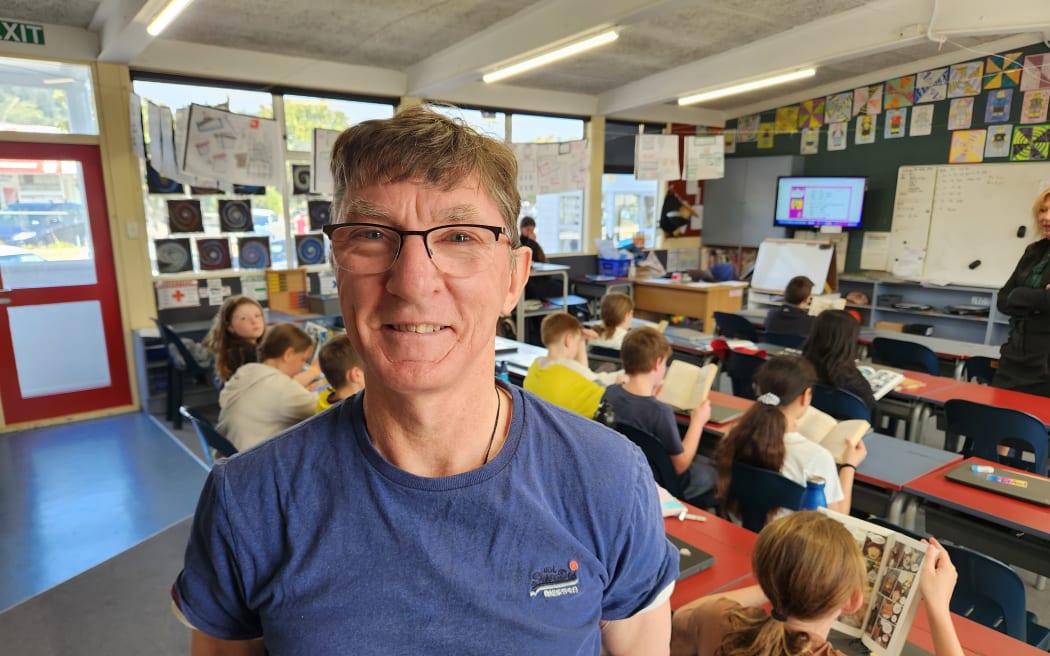
Silverstream School teacher Jim McGurk. Photo: RNZ / John Gerritsen
Principal Lorraine Taylor said she and her colleagues were expecting achievement might slip but test results did not indicate any drop in performance.
"Converse to what people might think we've actually seen that children are certainly where they should be and maybe a little bit further ahead academically than they would have been," she said.
Taylor said the school did not suffer the high staff and student absences that disrupted learning at many schools this year, and most children were well-supported at home during the lockdowns of 2020 and 2021.
"What we've got is a community where those children have been well supported during the various lockdowns by their parents at home and they've gone from being in a class of 28 kids and one teacher to being in a dining room with one or two parents and one or two siblings and it's certainly helped them," she said.
Taylor said an unexpected side-effect of the pandemic was that pupils who started school as five-year-olds during the height of Covid restrictions were the most independent group in the entire school.
"Even on their first day at school parents had to drop their children at the gate and just trust that those children would learn how to put their shoes away and hang their bags up, and get their reading books out, get their lunchbox out, and they have learned to be very independent and they were very independent within a week," she said.
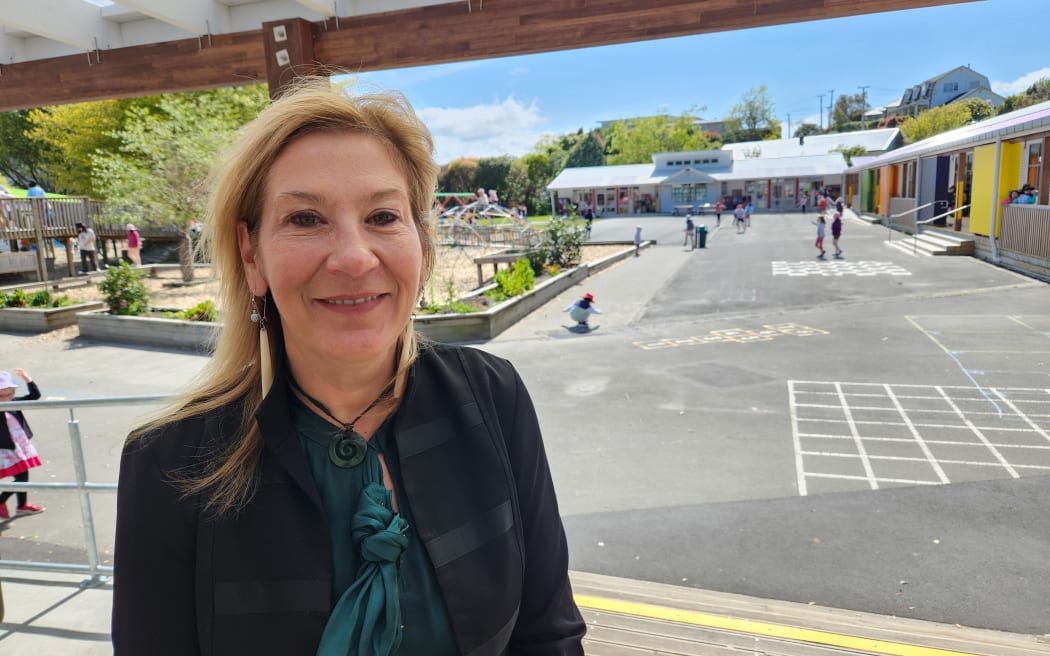
Silverstream School principal Lorraine Taylor. Photo: RNZ / John Gerritsen
A tough year
Newlands Intermediate teacher Jared Simons said this year had been the most difficult of the pandemic.
"I have a class of 32. I don't think I've had a full class of 32 all year. There's been anywhere between maybe three to seven students away on a daily basis and that could be for a number of different reasons," he said.
Simons said that made it difficult to maintain learning but despite that student achievement seemed to be no different than before the pandemic.
"I think they're performing pretty similar to be honest. I don't think I've seen anything drastically that's worse achievement-wise."
He said the one difference he attributed to the pandemic was a change in children's behaviour.
"It's not negative behaviour in class or anything like that, it's more immaturity, the sort of giggling and cackling and things like that so it can be a little bit hard to get their attention," he said.
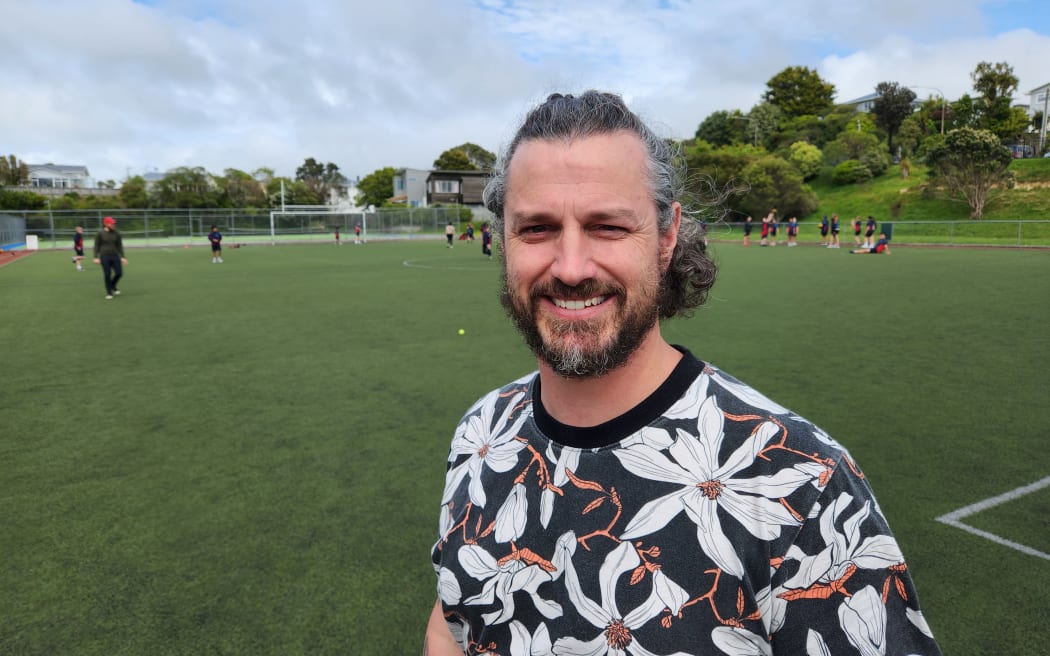
Newlands Intermediate teacher Jared Simons. Photo: RNZ / John Gerritsen
Principal Angela Lowe said students seemed less able to moderate their behaviour around others.
"They had been so removed from social situations and environments where they needed to look at others, they needed to respect others, they needed to acknowledge others and they needed to manage their own behaviour," she said.
Lowe said the school also noticed a decline in Year 8 students' ability to lead.
"We found it really difficult this year to get a sense of strong leadership from our students. They lacked care, they lacked compassion for others and we spent a couple of terms just focusing on that."
Pupils were spending a lot more time online and that had a negative effect, she said.
"There has been a lot more online bullying, there's been a lot more things that are occurring at midnight online that are having impacts in the school."
She said the school was yet to conduct the end-of-year testing that would show how the pandemic had affected their learning .
"We may see some dropping in that, we'll wait and see. I think personally we'll see a much longer-term effect in achievement outcomes, the academic progress that students are making. I think the next couple of years will show us a lot more than we currently see at the moment," she said.
"We might well see there have been some gaps in that foundational learning that will come to bear but it will be a couple of years before we see that."
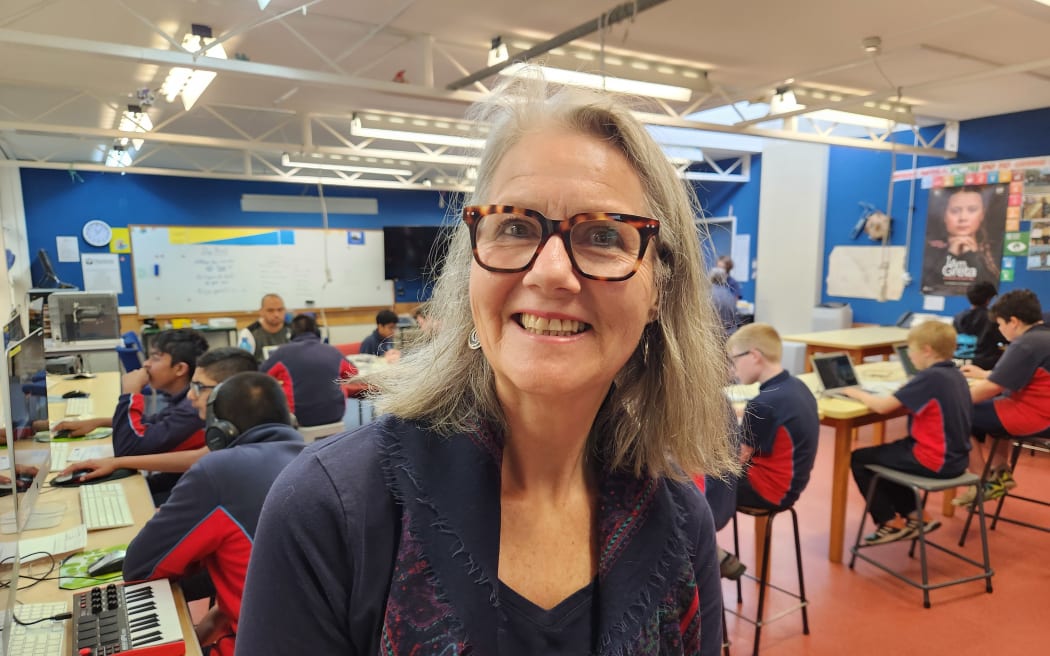
Newlands Intermediate principal Angela Lowe. Photo: RNZ / John Gerritsen
She said that had implications for all schools.
"It's important to be aware this might be coming, what could we do about it and moving to 'what does literacy learning look like, what does mathematics learning look like in the next couple of years' if in fact it is incumbent upon us to fill some gaps."

